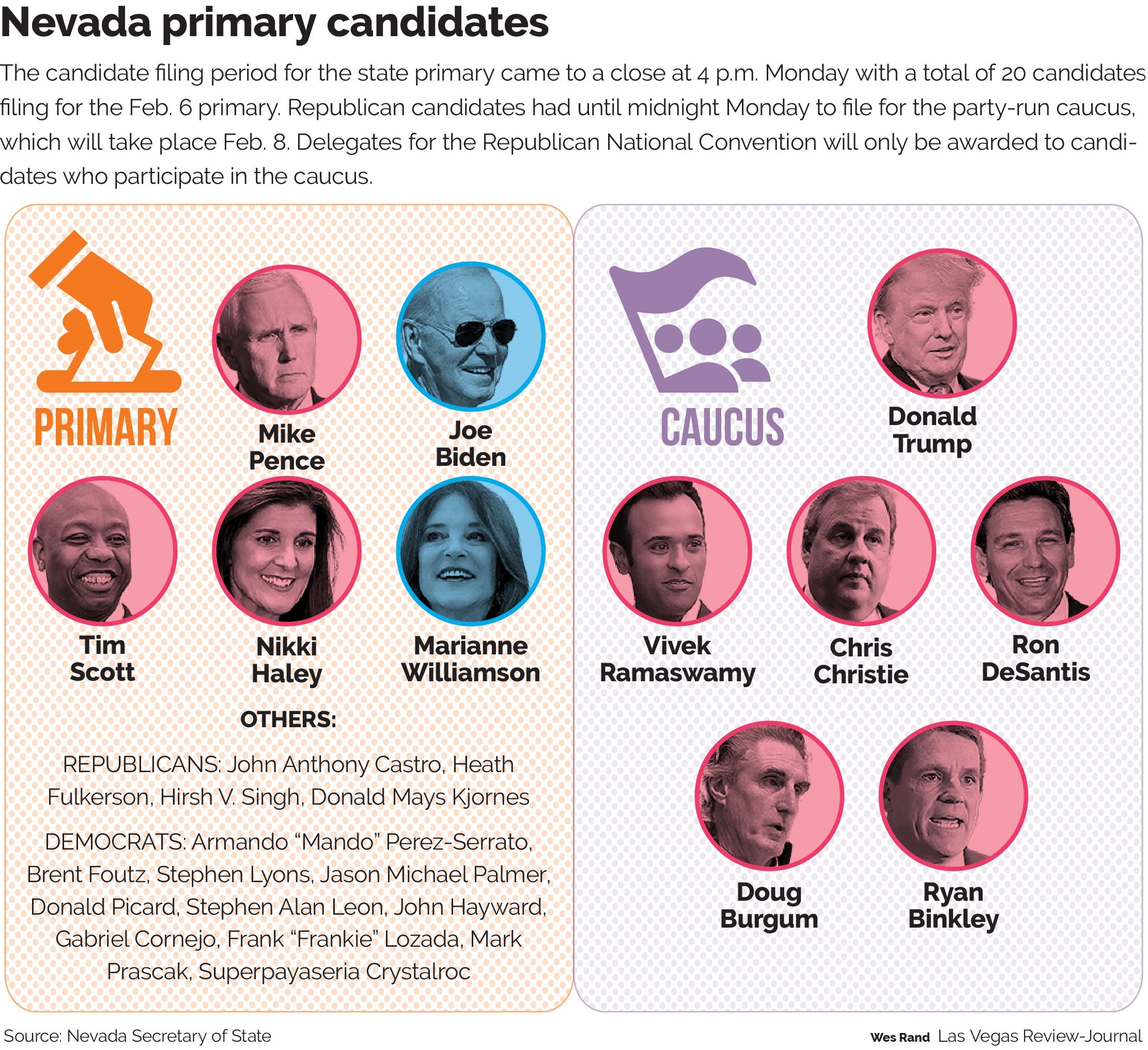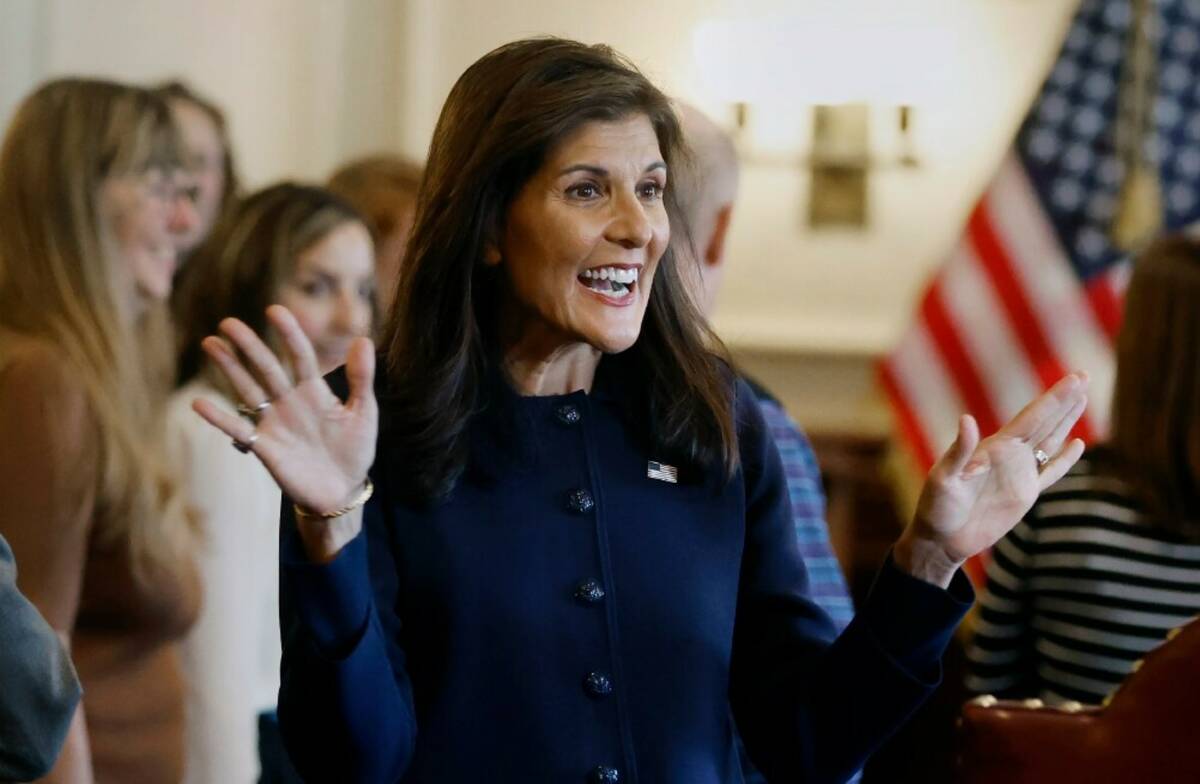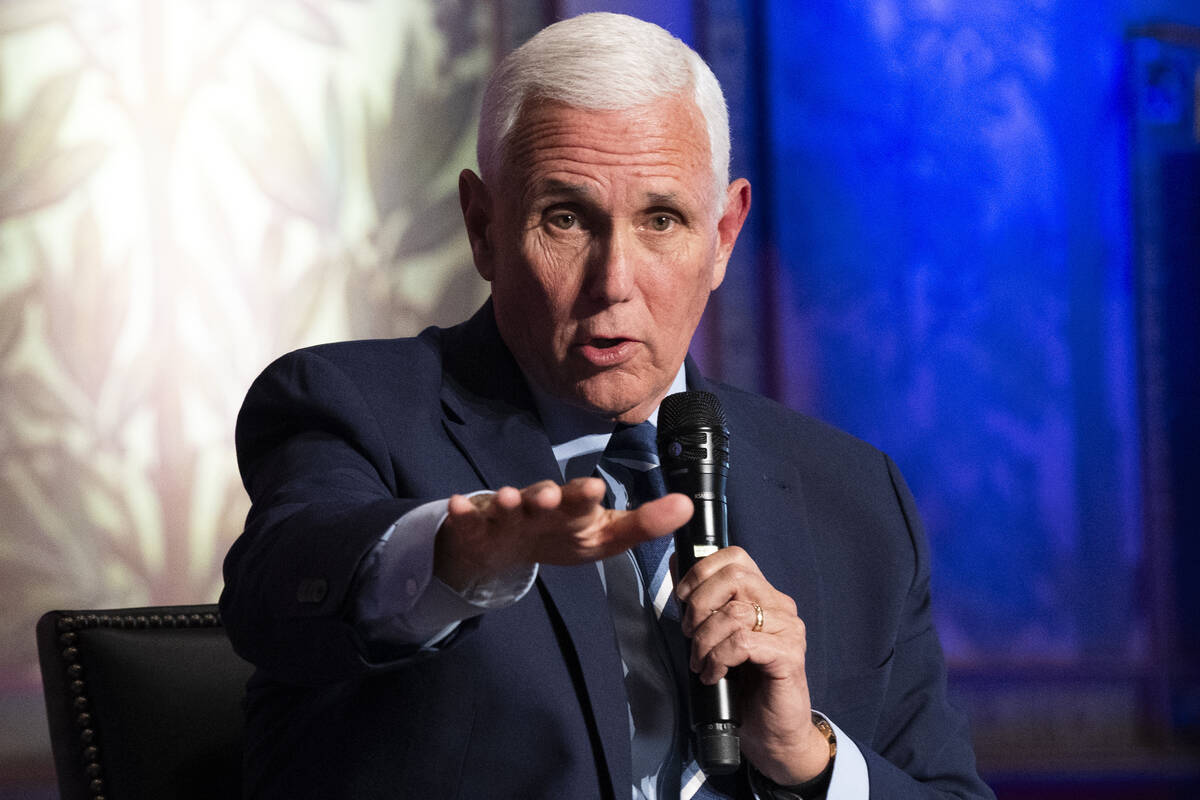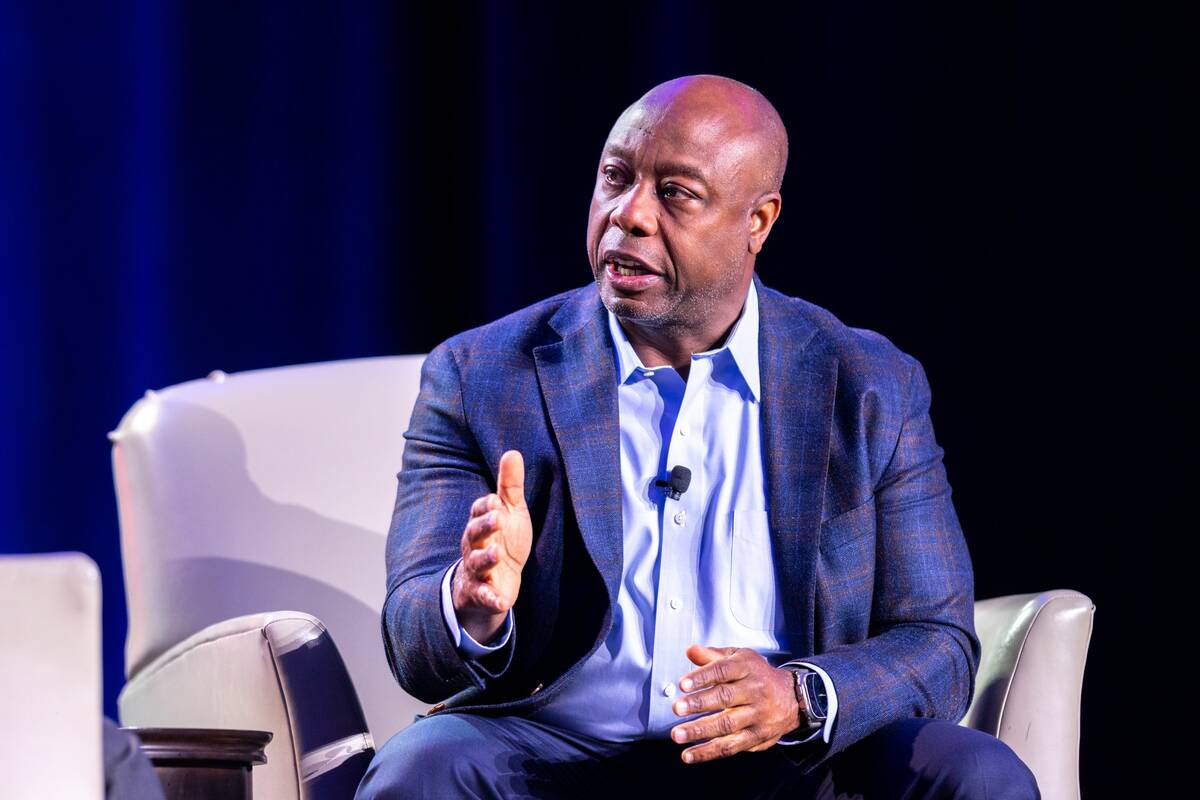Handful of GOP presidential hopefuls file for primary; most choose caucus
Nevada Republicans who want to vote for Nikki Haley, Mike Pence or Tim Scott will have to participate in a presidential primary where their vote may not count.
The candidate filing period drew to a close Monday in Nevada for both the state-organized presidential primary and the GOP-run caucus in Nevada. Despite losing out on an opportunity to receive the Silver State’s delegates, some big-name Republicans opted to participate in the state primary instead of the caucus.
The dueling presidential nominating processes scheduled two days apart — the primary will take place Feb. 6 and the caucus Feb. 8 — have sparked concerns of voter confusion, as some candidates will appear on one ballot instead of another.
The state, wanting to increase voter participation, pushed away from its caucus past in favor of state primaries in 2021 by requiring the secretary of state to hold presidential preference primaries for both major parties.
However, the Nevada Republican Party decided to hold a caucus regardless in order to control the election process and implement policies like voter ID requirements and paper ballots. Critics of the caucus, however, argue it favors former President Donald Trump, whose fervent supporters are more likely to participate in the one-day, in-person process.
Twenty candidates filed for the presidential preference primary, according to the secretary of state’s office. President Joe Biden filed to participate alongside 12 other Democrats, with his most well-known challenger being writer Marianne Williamson. No incumbent president has lost to a primary challenger in modern U.S. history, so Biden is likely to receive Nevada Democrats’ support in February.
Opting for the caucus
Several Republican presidential candidates filed for the state-run caucus — including Trump, entrepreneur Vivek Ramaswamy, former New Jersey Gov. Chris Christie, North Dakota Gov. Doug Burgum and businessman Ryan Binkley. Candidates had until midnight Monday to register, according to Nevada Republican Party Chairman Michael McDonald.
Even Florida Gov. Ron DeSantis, whose campaign and political action committee criticized the Nevada Republican Party’s plans to hold a caucus, accusing its leaders of favoring Trump, decided to go the caucus route.
“Ron DeSantis is committed to earning every single delegate available as he works to earn the Republican nomination for president, and Nevada is no exception,” communications director Andrew Romeo said in a statement from DeSantis’ campaign. “It is disappointing that the Nevada Republican Party changed the rules against the will of the people just to benefit one candidate. However, Ron DeSantis will fight to overcome these tactics.”
Others opt into primary
But some well-known Republican candidates — including former Vice President Pence, South Carolina Sen. Scott and former United Nations Ambassador Haley — opted for the state-run primary, thereby forfeiting their chances of winning delegates for the Republican National Convention in July.
Nevada gets 23 delegates for the convention, according to National Committeeman Jim DeGraffenreid.
When reached for a comment, Pence’s campaign referred the Las Vegas Review-Journal to remarks the candidate made Friday when filing for the New Hampshire primary. He told reporters that other campaigns had more money than his, and that his campaign will have to be more selective in where it invests its resources. To participate in the caucus, candidates must pay $55,000.
Haley’s campaign confirmed she filed for the primary but declined to comment further. Scott’s campaign did not return requests for comment.
McDonald, a Nevada fake elector who tried to subvert the 2020 election in favor of Trump, said the candidates who filed for the caucus are the ones who are polling high.
He thinks those big-name candidates who opted for the primary might be trying to grab headlines and are running on an “anti-Trump ticket.” The primary’s results are meaningless, McDonald said, and those candidates are “competing for a plastic tiara.”
“I don’t know what their thinking is,” McDonald said. “If you’re in front of the grassroots, if you’re in front of the people that are voting, people that make a difference, you’re competing for a delegate. That’s what you get out of the caucus.”
‘Still matters’
While candidates who participate in the primary can’t win delegates, the primary still matters, said Dan Lee, a political science professor at UNLV. Nevada’s delegates are not the reason why the Silver State is important in the national political landscape.
“Nevada is important because we’re early, not because of the number of delegates we have,” he said. “We don’t have that many delegates, so it’s always been about showing your viability, showing … how much support you have among Republican voters.”
Being on the primary ballot is how candidates can try to separate themselves as the leading challenger to Trump, Lee said. For those who don’t support Trump, the primary can show who will emerge as the most viable alternative, he said. Candidates like Pence and Haley will try to spin the results of the primary that highlights that viability, Lee said.
Generally, voter turnout is larger in primaries than caucuses, so candidates like Pence and Haley participating in Nevada’s primary might be able to say they received more votes than a candidate participating in the caucus, Lee said.
National coverage is also likely to be focused on the primary rather than the caucus since the timeline for results is shorter, according to David Damore, a political science professor at UNLV and interim executive director of the Lincy Institute.
Contact Jessica Hill at jehill@reviewjournal.com. Follow @jess_hillyeah on Twitter.














